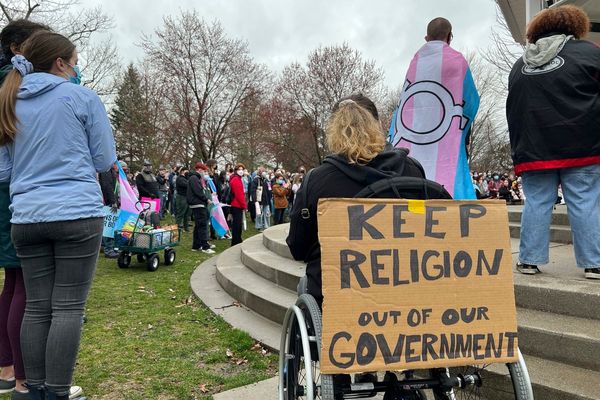
More than 500 cases of sexual abuse of aged care residents were reported in the last three months of 2021, a rate largely unchanged since the royal commission dubbed the prevalence of sexual crimes in residential care a “source of national shame”.
Experts say victims, many of whom live with dementia, are still being failed by systems not equipped to recognise or respond to crimes against those with serious cognitive impairment.
Now, the peak rights group for older Australians is demanding urgent change, launching a new project, named Ready to Listen, in an attempt to train providers to properly deal with sexual violence against their residents.
“We can’t be numb to it, and I think that’s one of the problems,” the project coordinator, Dr Catherine Barrett, told the Guardian.
“The numbers are shocking. One person is shocking. It has to change, it just has to change, because it’s not keeping with community standards.”
In its findings in February, the royal commission said the number of alleged incidents of unlawful sexual contact in 2018-19 were as high as 2,520, a rate of 48 a week. The government, at the urging of the commission, last year began compelling providers to report on serious incidents, including sexual abuse. The government set up the serious incident reporting scheme in response, which discloses the number of physical and sexual assaults in residential care.
Data from the last quarter of 2021 showed 530 incidents of unlawful sexual conduct or inappropriate sexual contact were reported, a rate of about 44 a week, only down slightly from the figures cited by the royal commission.
“The sector has seen little improvement since the aged care royal commission handed down its findings more than 12 months ago,” Older Persons Advocacy Network chief executive Craig Gear said.
The issue is compounded by institutional failings in responding to reports of sexual abuse in residential care. In 2019, a study by KPMG found aged care staff believed that sexual assault had had “no impact” on victims in the majority of cases, a finding experts attribute to the belief that those living with dementia will not be distressed or have any memory of the assault.
“We’ve got people who have difficulty communicating that they’ve been sexually assaulted – and that’s the reason they get targeted – so they can’t articulate the devastation to them,” Barrett said. “But that does not mean it’s not there.”
Police and providers can also be reluctant to take action over the abuse of those living with dementia, believing evidence from those with cognitive impairment is unreliable and cannot be used in court.
Barrett said she has seen police notes from one case where police refused to investigate a rape because a woman had dementia. The victim had been calling out that she had been raped, but police dismissed the suggestions as “rape fantasies”.
“That’s police services, but sexual support services are unprepared as well. The court system is unprepared as well,” she said.
“At every level of the system, we need reform on this.”
The Ready to Listen project – led by Opan in partnership with Barrett’s organisation, Celebrate Ageing, and the Older Women’s Network NSW – will train aged care providers in how to take disclosures seriously and respond effectively.
That includes helping providers give trauma-informed support for victims, develop prevention strategies and better hold perpetrators to account.
“The work is about education, but doing education in a way that really embeds it,” Barrett said.
Part of the work is helping providers know how to report incidents to police.
“There are so many potholes in this road,” Barrett said. “One of them that we’re working on at the moment are the police guidelines, service providers are telling us they’re really unclear. So we’ve been developing guidelines on reporting to police and trying to make it really clear – talking to lawyers, police and service providers.”







